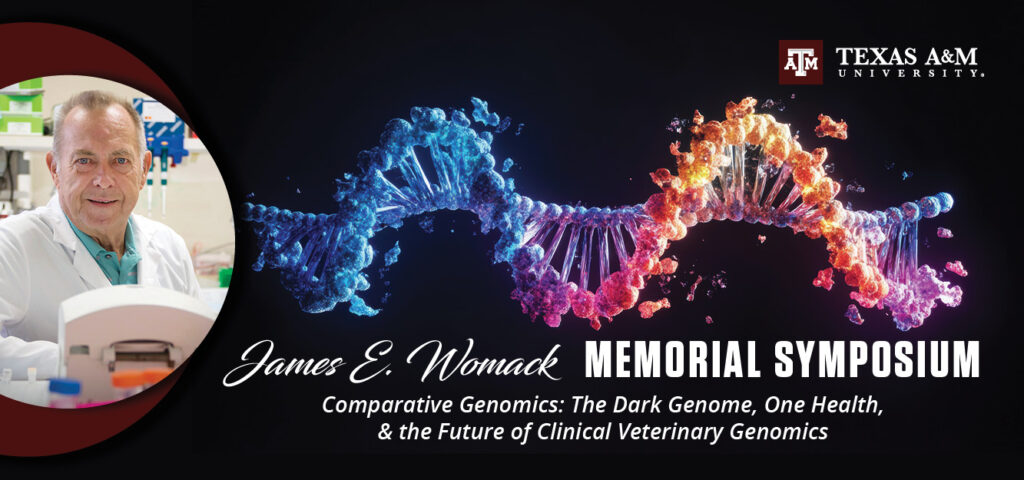
James E. Womack Memorial Symposium
Wednesday, March 19, 2025
Dr. Harris Lewin — “Genomes in dialogue: The enduring impact of James E. Womack on comparative genomics”

Dr. Harris Lewin is a Research Professor at Arizona State University, Distinguished Professor Emeritus of Evolution and Ecology at the University of California, Davis, and Professor Emeritus of Animal Sciences at the University of Illinois at Urbana-Champaign. At Illinois, he served as Founding Director of the W.M. Keck Center for Comparative and Functional Genomics and Founding Director of the Carl R. Woese Institute for Genomic Biology. Lewin’s current research interest is in mammalian genome evolution as it relates to adaptation, speciation, and the origins of cancer. Lewin co-founded the Earth BioGenome Project (EBP), which aims to sequence all described eukaryotic life, and currently serves as the Chair of the EBP Executive Council. Lewin is a Foreign Member of the Royal Swedish Academy of Agriculture and Forestry and a member of the U.S. National Academy of Sciences. Lewin was awarded the Wolf Prize in Agriculture, the Lowell Thomas Award from the Explorers Club (NYC), and the Zhongguancun International Cooperation Award from Beijing.
Thursday, March 20, 2025
Dr. William Murphy — “Comparative genomics illuminates the dark side of the genome”
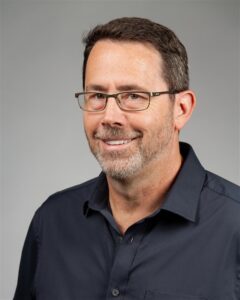
Dr. William Murphy is the James E. Womack University Professor of Genetics in the Department of Veterinary Integrative Biosciences
at the Texas A&M College of Veterinary Medicine & Biomedical Sciences (VMBS); and director of the recently established Texas A&M AgriLife Center for Comparative Genomics. Well-known for his contributions to comparative mammalian genomics, molecular phylogeny, biogeography, and molecular evolution, including gene mapping, sex chromosome genetics, speciation, and mechanisms of male hybrid sterility, his work has helped redefine the mammalian tree of life and transform our understanding of biology, especially through his research on the domestic cat genome. Some of his most transformative work has come from his participation in the Zoonomia Project, an international consortium of scientists who use the largest mammalian genomic dataset in history to answer questions about human evolution as it relates to overall mammal evolution. Murphy was elected to the U.S. National Academy of Sciences in 2024.
Dr. Leif Andersson — “Comparative genetics of phenotypic diversity in domestic animals and natural populations”
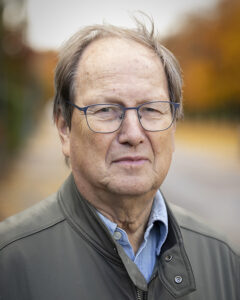
Dr. Leif Andersson is a professor at the VMBS and a fellow of the Hagler Institute for Advanced Study from the class of 2013–14. He also holds professorships in functional genomics in the Department of Medical Biochemistry and Microbiology at Uppsala University and in molecular animal genetics at the Swedish University of Agricultural Sciences in Uppsala. He is among the world’s most renowned scholars in the genomic and molecular study of domestic animals and has carved a scientific niche by approaching farm animals as model organisms. He is a member of the U.S. National Academy of Sciences and the Royal Swedish Academy of Sciences. Andersson was awarded the Wolf Prize in Agriculture in 2014, the Thureus Prize in Natural History and Medicine from the Royal Society of Sciences, the Linneus Prize in Zoology from the Royal Physiographic Society of Lund, the Hilda and Alfred Eriksson’s Prize in Medicine from the Royal Swedish Academy of Sciences, and the Olof Rudbeck Prize from Uppsala Medical Society.
Dr. Michel Georges — “The processes of de novo mutations in the bovine germline”

Dr. Michel Georges is a professor of genetics and genomics at the Faculty of Veterinary Medicine of the University of Liège in Belgium. From 1989 to 1993, he was a senior scientist, then director of research at Genmark Inc., and an adjunct professor in the Department of Human Genetics at the University of Utah in Salt Lake City. Since 1994, he has headed the Unit of Animal Genomics at the University of Liège, where he has played an instrumental role in establishing the GIGA Research Institute. Georges was awarded the Wolf Prize in Agriculture in 2007, the Francqui Prize in Biological and Medical Sciences in 2008, and was elected to the U.S. National Academy of Sciences in 2013.
Dr. Kathryn Meurs — “Moving from reactive to proactive medical care—the power of clinical genetics”
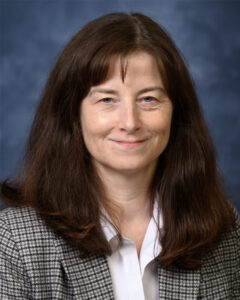
Dr. Kathryn Meurs is the Randall B. Terry, Jr. Dean and distinguished professor in comparative medicine at the North Carolina State University College of Veterinary Medicine. She completed her DVM at the University of Wisconsin–Madison and completed a small animal internship at North Carolina State University. She completed a cardiology residency at Texas A&M University and is board-certified by the American College of Veterinary Internal Medicine (ACVIM) in Cardiology. She has served as Chair of the American Veterinary Medical Association (AVMA) Council of Research, the American Association of Veterinary Medical Colleges (AAVMC) Research Committee, and the Morris Animal Foundation Scientific Advisory Board. She has a Ph.D. in Genetics from Texas A&M University, and her research and clinical interests include familial forms of cardiac disease, particularly canine and feline cardiomyopathy. She has authored or co-authored more than 130 peer- or editor-reviewed manuscripts and 75 scientific abstracts.
Dr. Richard Gibbs — “Clinical translation of genomics to advance discovery”
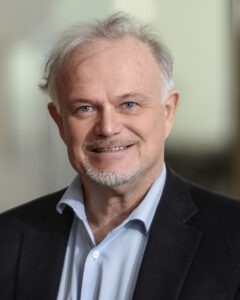
Dr. Richard Gibbs holds the Wofford Cain Chair in Molecular and Human Genetics at Baylor College of Medicine (BCM), is a member of the National Academy of Medicine, and a fellow of the Hagler Institute for Advanced Study at Texas A&M University from the class of 2015–16. He is the founder and director of the Human Genome Sequencing Center (HGSC), established at BCM in 1996. The HGSC has a core mission of advancing medical care through research and translation of genomics and is one of the five worldwide sites selected to undertake and complete the Human Genome Project. The group subsequently collaborated to sequence the genomes of many key species, including Drosophila melanogaster, Brown Norway rat, Rhesus macaque, cattle, Dictyostelium discoideum, sea urchin, and honeybee. His research group generated the first comprehensive map of human genetic variation. The HapMap project was the first to demonstrate the utility of diagnostic whole genome sequencing to guide effective clinical treatments of genetic diseases. The HGSC now provides full genome sequencing to hundreds of individual patients each month.
Panel Discussion: Issues in Clinical Veterinary Genomics — Moderated by Dr. Kathryn Meurs
Dr. Danika Bannasch
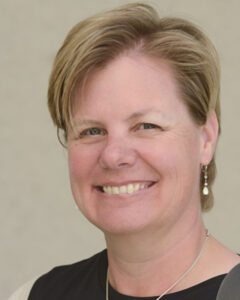
Dr. Danika Bannasch is a professor in the Department of Population, Health & Reproduction, associate director of the Center for Companion Animal Health, and associate dean of the School of Veterinary Medicine at UC Davis. Her research is focused on the genetic basis of inherited diseases in animals, particularly in dogs and horses, as models of human inherited diseases.
Dr. Gus Cothran
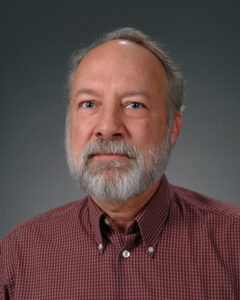
Dr. Gus Cothran is a professor emeritus at the VMBS with a focus on equine population genetics, conservation genetics, and genetic diversity of both domestic and wild horse breeds worldwide. He previously served as the director of the Equine Parentage Testing and Research Laboratory at the University of Kentucky and, more recently, as the director of the Animal Genetics Laboratory at Texas A&M. He served four terms as the chair of the International Society of Animal Genetics (ISAG) standing committee for Thoroughbred DNA Typing Standardization and is a past chair of the Equine Standing Committee of ISAG. In addition, he has served on the Deer Genetics Standing Committee and the ISAG/FAO Standing Committee for Domestic Animal Genetic Diversity.
Dr. Brian Davis
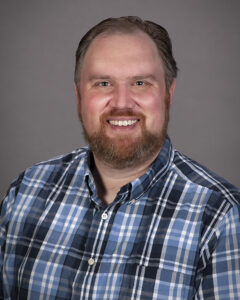
Dr. Brian Davis is an assistant professor in the Department of Veterinary Pathobiology, with a joint appointment in the Department of Small Animal Clinical Sciences, and is the director of the Veterinary Medical Biorepository (biobank) in the Office of Veterinary Clinical Investigation at the VMBS. His research focuses on the field of comparative genomics, and he has been instrumental in addressing hereditary diseases in dogs, cats, and other animals with the potential to translate these findings into treatments for similar human conditions.
Dr. Molly McCue
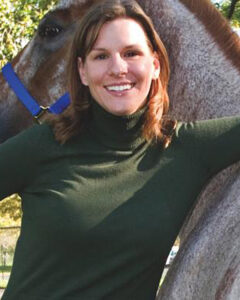
Dr. Molly McCue is a professor and former associate dean of research in the College of Veterinary Medicine, University of Minnesota. She has established herself as a leader in the field of veterinary genetics, with a particular focus on metabolic disorders, performance traits, and inherited diseases in horses and dogs.
Dr. Terje Raudsepp
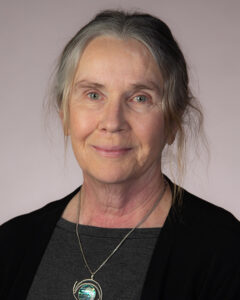
Dr. Terje Raudsepp is a professor in the Department of Veterinary Integrative Biosciences and the director of the Molecular Cytogenetics Laboratory at the VMBS. She specializes in animal cytogenetics and genomics with a particular focus on equine and comparative genomics. Known for her expertise in chromosome biology, she has made significant contributions to understanding the structure, function, and evolution of animal genomes, particularly in domestic and wild species of equids and camelids.
About the Symposium
The James E. Womack Memorial Symposium was co-sponsored by the following Texas A&M entities:
